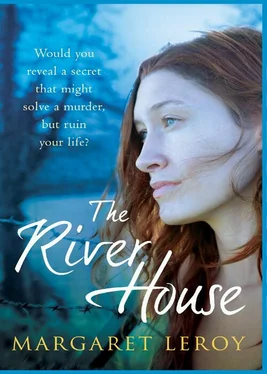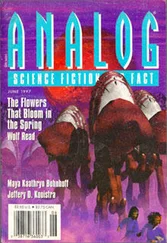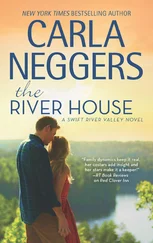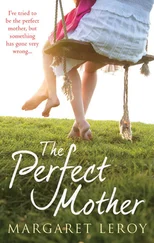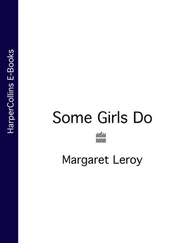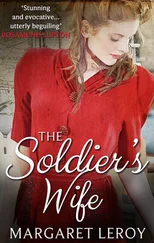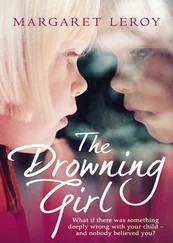And then Greg said, ‘Ginnie’s ever so tired, aren’t you, darling? Bringing up the girls—she has her hands full. You know, life’s very busy.’
And the counsellor said yes, that it would probably all change when our daughters were older. I felt a kind of despair then, as they both insisted that our problem was not such an issue really and perfectly predictable. I knew such bleakness, in the room with the African violet and the toothpaste walls. Feeling that this was beyond repair, that we’d reached the end of the line.
After that she retreated to safer ground—to our relationship history and the story of how we’d met. She sat back in her chair now, she seemed to be more at ease. I understood what she was seeking to do—to unearth or recover whatever had originally drawn us together. I might well have done the same in her place. Though I didn’t see how this could help us. You can’t go back there.
I told her how we’d met at a dinner party—just giving the outline of the evening. It was a Burns Night dinner, held by some friends of Max’s, who’d wangled me an invite: and we were all told to bring a song or a poem: and I fell in love with Greg when he was reading aloud.
It was done with panache—a long refectory table, a proper damask tablecloth, the whole place shimmering with candles. The men wore dinner jackets, the women were in long dresses. I remember one woman who had a dress of some slippery cloth that was tight across her breasts, and a heap of blonde hair pinned high up on her head. There was whisky that tasted wonderfully of woodsmoke.
But even after the whisky, most of us were a little embarrassed reading the poems we’d brought. Mostly we chose comic poems, keeping the emotional temperature down, so as not to seem pretentious. Max read something by Craig Raine. I read a poem by Wendy Cope, which was short and a little poignant. The blonde woman didn’t read anything, though toward the end of the evening she pulled out her hair clip and let down all her hair, shaking her head a little as it fell, so it rippled and gleamed in the candle-light. Max watched intently. Someone took out a guitar and sang a Tom Lehrer song.
I didn’t really notice Greg till he started to read. He was rather too thin for my taste, and anyway seated up at the other end of the table. But he had a beguiling speaking voice—a subtle, cultured baritone. He read something obscure and Celtic, a strange tale of enchantment, of four companions who were walking in their lands when a mist fell: and when it lifted the land was bright but everything they knew had disappeared, all their flocks and herds and houses and the people who were with them; there was no animal, no smoke, no fire, no man, no dwelling, so only the four of them remained alone. The narrative was disjointed, dreamlike, as though the storyteller had stitched together many different strands. There were curses and metamorphoses and one thing becoming another, and magical objects and animals—a shining white boar, a golden bowl. Greg read with complete confidence, expecting to be listened to. It was a bold thing to do, to read something so rich and elusive. We heard him in attentive silence. Afterwards, before we clapped, there was a little collective sigh of pleasure.
At the end of the evening, as people started to drift away, I went to him and asked about the story. I was warm with the wine, fluid, more forthcoming than usual. It was from the Mabinogion, a collection of medieval Welsh stories, he said. He lent me his copy, wrote his phone number in it, insisted that I had to give it back when I’d finished. I noticed that his cufflinks were little silver fish. He seemed quirky, cerebral, charming: but with a kind of reserve that made me feel at ease. Max gave me a quick knowing smile as he slid out of the room, his arm round the blonde woman, his fingers tracing the curve of her hip through the flimsy fabric of her frock, as though they were lovers already.
Yet I misread Greg, of course. The whole attraction was based on errors of interpretation. I saw his detachment as a kind of peacefulness, a safety I knew I needed. And he, I think, misunderstood me too—welcomed my shyness, my hesitancy, believing I would be happy to be a rather traditional wife, grounding him, keeping everything calm and stable: while life for him, the real thing, happened elsewhere. There’s such readiness, at some points in your life, to move on to the next stage—the old world over, the new one not yet begun. You grasp at anything you feel might take you forward. There, it’s all signed and sealed, the choices made, the path plotted out. And you find yourself in the middle way: your marriage empty, your children leaving, the mist falling over the land.
I sit in the soft late afternoon sun that falls across my office, sipping a final coffee. I like to stay here sometimes before I head for home, letting the day and all its tensions fall from me.
The file of the last child I saw is on the desk in front of me. Gemma Westerley—a little waif in frilled socks, with hair the colour of straw and a naked, timid smile. She has special needs, though for years her teachers didn’t realise; she was quiet in class and her exercise books were orderly with hearts drawn in the margins, and nobody saw how little she understood. Now her teacher is worried she might have been abused. Her confusion is still here in the room, like a trace of smoke or perfume. I make some notes, then put the file away.
I plan my evening. There’s fish in my bag for tea. I went to the market at lunchtime and braved the fish stall with its glazed dead eyes: this made me feel like a good mother. Amber is going out later, to the Blue Hawaii for a birthday party, where they will drink cocktails named after sex acts and laced with too much v dka, and I want to make sure that at least she’s eaten properly. And when Amber has gone I shall start to tidy Molly’s room.
At the thought of Molly, I feel a little surge of anxiety. I wonder whether she woke on time this morning, and whether she has made friends with the girl with the black shiny hair. I wonder when she will ring me.
I look through some post that wasn’t urgent—courses I could go on, and a catalogue from a firm I’ve used before. They make hand puppets and therapeutic games. The catalogue is glossy, full of colours. I flick through. There’s a crocodile with a zipper mouth, to use with children who’ve been abused, to help them tell the things they’re keeping secret. There’s a wolf that’s half as big as a child. ‘A large scary wolf who can also be afraid. Is he then so scary?’ I think how Amber would have adored him when she was little and had a scheme to keep a wolf as a pet. And there’s a grey velvet caterpillar, with poppers you can undo to hatch a yellow butterfly. I shall take the catalogue home and see if there’s anything useful. Perhaps I should order the crocodile for Gemma. But I’m tempted too by the chrysalis that turns into a butterfly. I’m not sure which child I would use it with: but I love its velvet wings.
My mobile rings. I scrabble in my handbag, thinking it’s Molly.
It’s a number I don’t recognise.
‘Now, am I speaking to Ginnie?’
My pulse has skittered off before I consciously recognise his voice.
‘Yes.’
‘Ginnie,’ he says. ‘It’s Will.’ I notice how he doesn’t give his surname. ‘Look, I’ve got some info on your little patient. Quite interesting.’
‘Thanks so much,’ I tell him.
There’s a little pause, as though he’s drawing breath or working out how to put something. The sun through the window is warm on the skin of my arms.
‘Would you like to meet up to talk about it?’ he says.
‘That would be really helpful,’ I tell him.
Читать дальше
